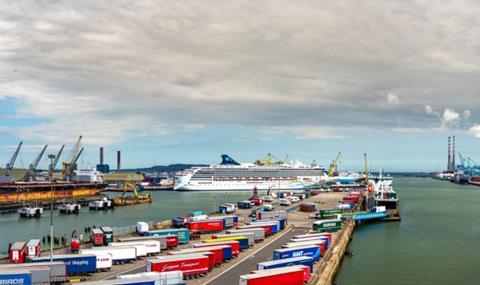
Brexit red tape has seen a 20-fold increase in the inspection of food and plant product consignments by health inspectors at Irish ports, according to data from Eire’s Department of Agriculture (DoE).
The introduction of sanitary and phytosanitary (SPS) border checks on goods being imported from Britain, following Brexit, has seen DoE inspectors and health officials processing around 1,700 consignments a week compared with fewer than 100 a week last year.
Hazel Sheridan, head of the department’s import controls division, said the 53,000 consignments processed so far this year compares with about 4,000 to 5,000 last year before Brexit.
However the data also reveals that whilst Brexit paperwork is continuing to fox some British exporters the number of rejected consignments have fallen. Out of 53,148 consignments processed since the start of the year, less than 1%, or 262 were rejected. In more than half of these cases it is because there is inadequate, incorrect or missing paperwork.
State officials said that in addition to incomplete paperwork, the failure of businesses to give the required 24-hour notice for the arrival of goods subject to SPS checks has caused delays.
Around 47,000 of the 53,148 consignments that require processing by inspectors enter via Dublin Port, with a further 2,300 coming through Rosslare Europort.
Of the weekly consignments, about 1,000 are products of animal origin, about 300 are plants or plant products, 100-200 are live animals, and pesticides are in single digits.
The Eire Revenue Commission also reported only a marginal increase in “green routed” goods arriving from Britain, which do not require post-Brexit physical checks. Of the 289,700 freight vehicle movements arriving from Britain through Dublin Port and Rosslare Europort during the first nine months of the year, 85% were green-routed, up from 84% compared to the figure for the first six months of the year.
The number of freight vehicles “red-routed” for a physical examination or inspection fell by a percentage point to 3%. The number of lorries “orange-routed” – meaning they required a documentary check or similar control – remained at 12% for the nine months.
Irish hauliers complained about delays associated with the increased post-Brexit bureaucracy and documentation. “There is a huge amount of effort and time and minutiae of detail that goes into the consignments that get through. Why can’t it be simplified?” said Eugene Drennan, president of the Irish Road Haulage Association.
However the Irish Revenue said: “Mandatory check for certain types of goods are simply a reality of trading with a third country, including Great Britain.”














